La Liga
When Messi found his voice, Argentina found its leader
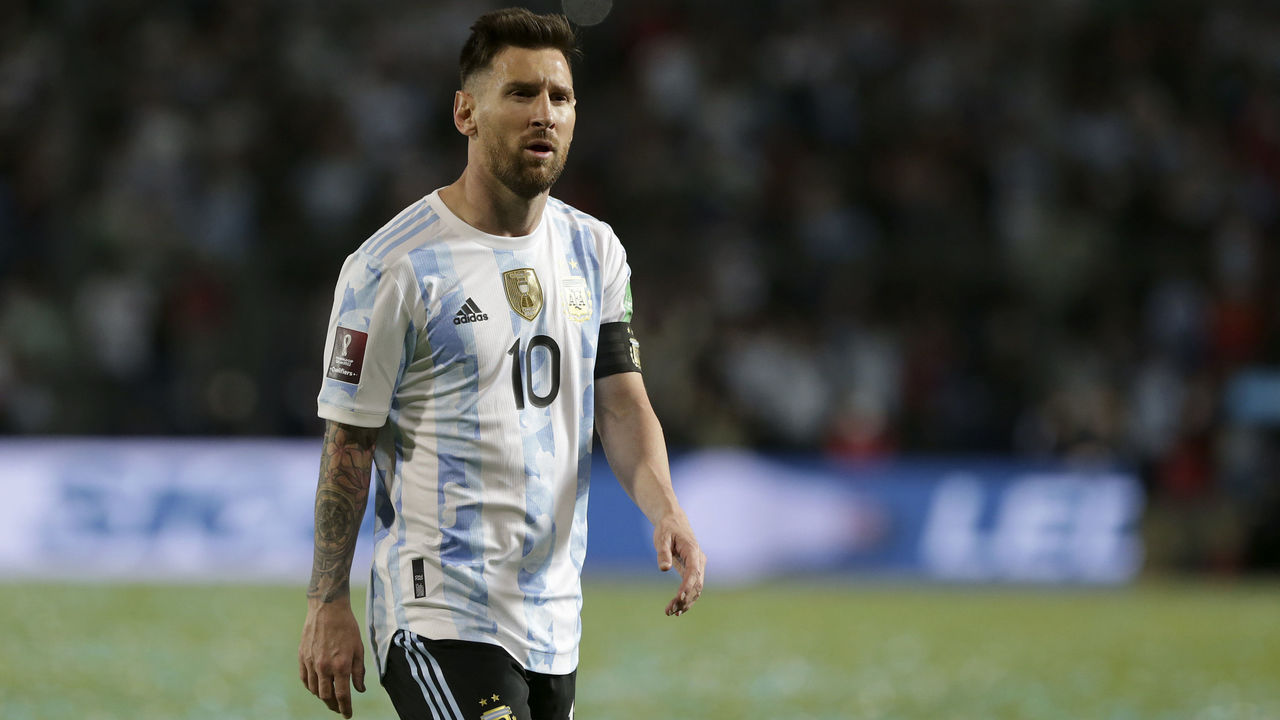
Alejandro “Papu” Gomez cried like a baby. Lisandro Martinez felt like eating up the entire pitch. The speech made everyone in Argentina’s locker room breathe fire. Lionel Messi, soft-spoken to the outside world, showed a side of himself inside the bowels of the Maracana Stadium that few had seen before.
“(It’s been) 45 days without seeing our families, guys,” Messi bellowed before the Copa America final in July 2021. “(Emiliano Martinez) had a daughter and couldn’t even see her. He couldn’t hold her in her arms. Chino also had a son, and he only got to see him for a little while. All for what? For this moment. Because we had a goal, and we are very close to achieving it.
“And you know what the best of all is? That this depends on us. That’s why we’re going to go out on the pitch, and we’re going to raise the cup.”
Lionel Messi in ‘estado puro’ – his purest form – before the Copa America final in 2021.pic.twitter.com/85prLc6Kk5
— Football España (@footballespana_) November 2, 2022
Messi didn’t score that night. He didn’t have to. Argentina beat Brazil on Brazilian soil to win the Copa America for the first time since 1993. The players celebrated with Messi on their shoulders. They knew who to thank – and who deserved thanking.
“Half the world would have run to hug him,” head coach Lionel Scaloni told The Guardian.
That moment brought Messi peace. It removed a “thorn from his side,” according to Scaloni. Messi lost in many finals, faced so much criticism back home, and put his face in his hands too many times to count that winning something with Argentina barely felt real.
Winning a World Cup would complete the fairy tale. This is his fifth and likely final appearance at this tournament, and he’s already played his part, scoring the winning goal against Mexico to give Argentina hope of progressing to the knockout round. A win over Poland on Wednesday would do the trick. Anything less would put Argentina at risk of elimination.
But the pressure to win isn’t there, at least not as it once was. Messi’s tossed aside the desperation that used to fit him like a straitjacket. Now, he feels a sense of joy and privilege. His perspective has changed, and so has the country’s view of him.
For so long, Messi and Argentina were worlds apart. When things went wrong, the naysayers had explanations ready. He spent most of his life in Barcelona, they said. How could he ever know what it means to play for Argentina?
Jetting off to Catalonia at 13, Messi left behind his hometown of Rosario, his family, and even his future wife, Antonela Roccuzzo. He could’ve played for Spain – the Spanish football association tried to call him up when he was still a teenager – but he knew what he was. Messi never lost his Argentinian accent or his love for his country’s customs. Mate in hand, he always looked and sounded like the kid from Rosario. He always felt distinctly South American, even if the skeptics back home – a group that only seemed to grow by the summer – continued to question his Argentinianness.
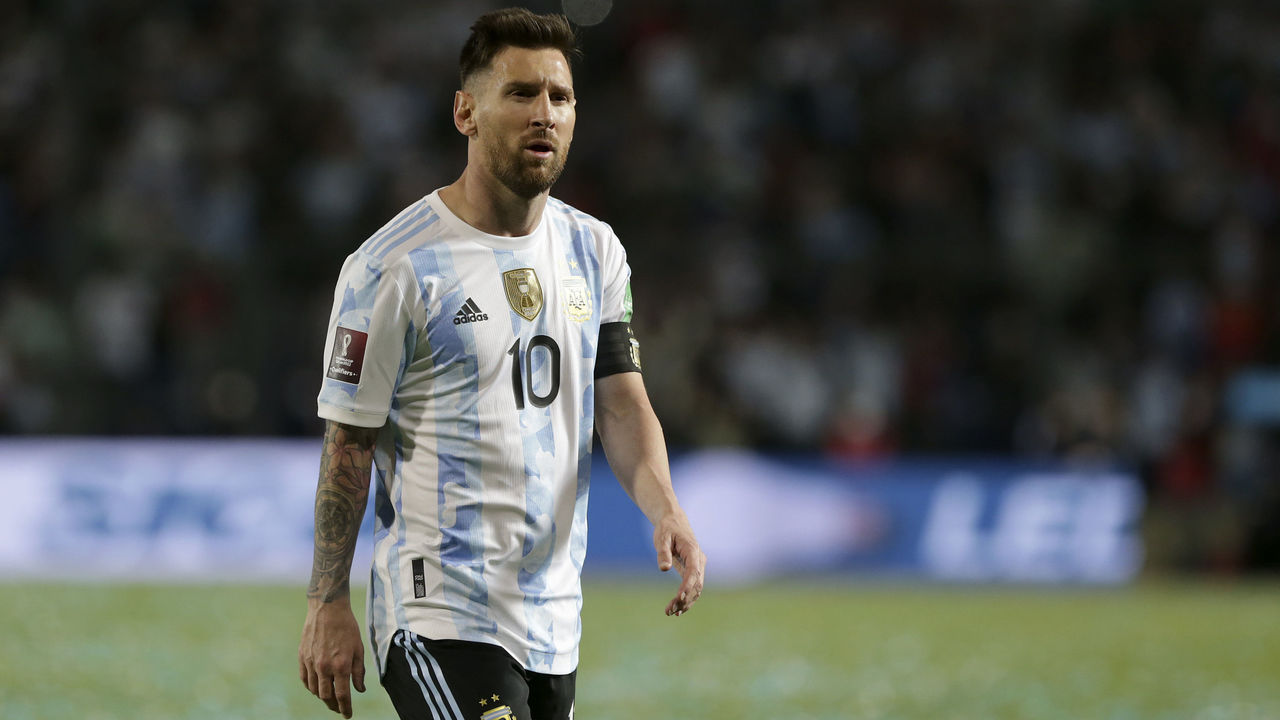
“The more he won in Catalonia, the more he lost with Argentina, and the more Argentina wondered how much ‘The Flea’ still belonged to them,” Angelo Carotenuto wrote in the Italian magazine Rivista Undici.
Messi won the Champions League four times with Barcelona from 2006-16. During that same stretch, Argentina lost twice in the quarterfinals of the World Cup and in the final in 2014. Messi went eight years without scoring a goal in the biggest tournament known to sports, lost in three Copa America finals, and missed a critical penalty in one of them.
But it wasn’t just the failures that weighed on him. Something didn’t jive. Until recently, Messi wouldn’t sing the national anthem, preferring to hum the tune during pre-match recitals. He didn’t speak up when Argentina lost or faced scrutiny. Having dodged so many assassination attempts on his character, Messi retired, albeit briefly, from international duty in 2016.
They said Messi was nothing like Diego Maradona, and they were right. He wasn’t the street fighter from the ghetto. Messi was from the lower middle class, saved from the rough upbringing that forged Maradona’s very soul and, in many ways, the soul of the country itself. When Maradona won the World Cup for Argentina in 1986, he did it in the most Argentinian way possible: Punched in the face and kicked and beaten, he put the team on his back and took it to the very top.
Argentina’s image of Maradona was of a man who fought for his people, a reflection of itself. Argentina’s image of Messi was of a boy who couldn’t carry the same burden.
“Maradona had the enormous advantage that he didn’t have to be like anyone else,” Argentinian writer Martin Caparros told the New York Times in 2014, “and Messi has to be like Maradona all the time.”
Messi only temporarily reentered the good graces of the thankless public. There was the hat-trick he scored in qualifying that ensured Argentina’s participation in the 2018 World Cup, and then the picturesque volley that sent Maradona into bedlam and Argentina into the round of 16 later that tournament. But these were moments, nothing more. There was no grand reveal or blood, sweat, and tears smeared on his jersey. There was no parabolic journey through the muddy, crime-ridden slums or flaws in his brilliance, just a squeaky-clean image free of personality. Argentina could see itself in players like Carlos Tevez, the scruffy striker from the streets of Buenos Aires. It couldn’t in Messi, no matter how hard he tried or how many gestures he made.
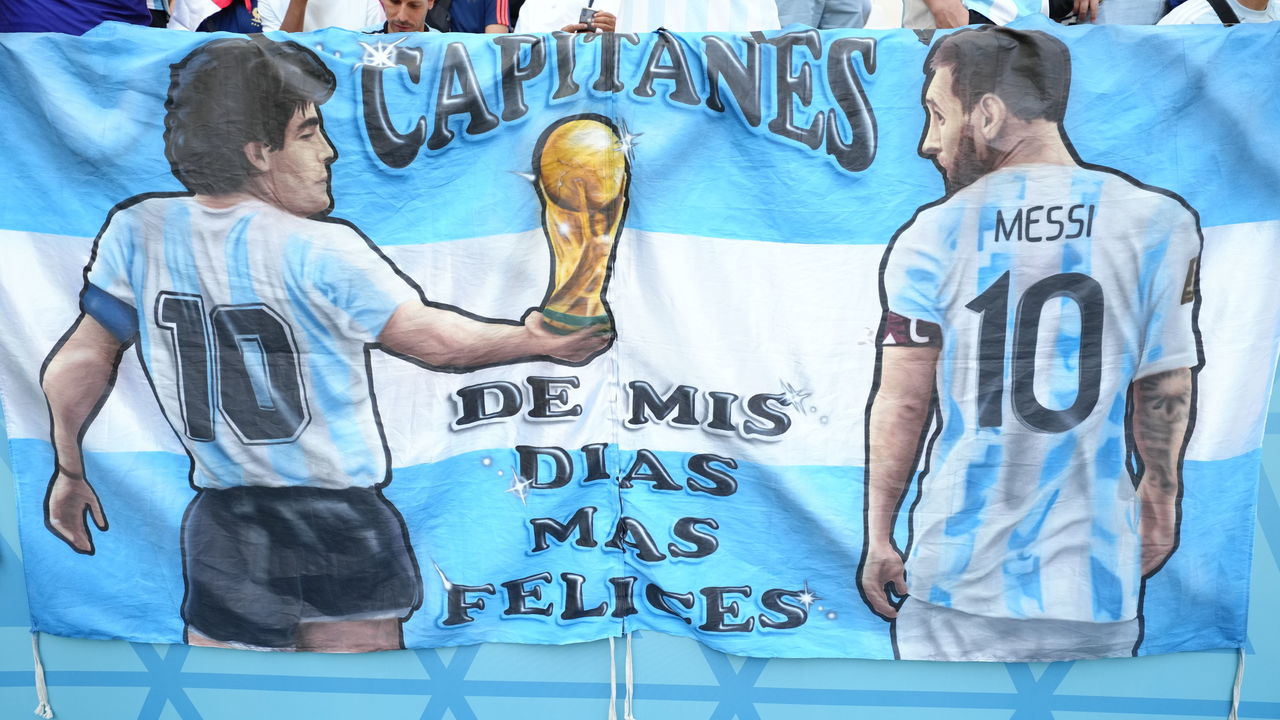
When he refused to accept MVP honors at the 2016 Copa America, Messi did it quietly. But Jorge Sampaoli, his coach at the time, noticed. He knew Messi wasn’t there to win any personal accolades. He was there, Sampaoli said, to win something for Argentina.
After retiring, something changed inside Messi. The man who fought so hard for the respect of his compatriots, for a country that gave him nothing but grief in return, took a stand.
It first emerged in the form of a hammer blow in April 2017. Unmarked in the penalty area, Messi swept home a stunning goal to clinch a dramatic 3-2 victory for Barcelona. It was his 500th career goal, scored against Real Madrid at the Santiago Bernabeu, as perfect a moment as he could ever have to send a message to the world. Tearing off his shirt, Messi held it aloft as if to say to his rivals that he was back, he was Messi, and he was proud of it.
“This is me,” Caparros imagined Messi saying in that moment. “Look, and shut up.”
Messi responded off the pitch, too. He ripped the officiating during Argentina’s 2-0 loss to Brazil in the Copa America semifinals, claiming the referees showed bias toward the host nation. He later accused CONMEBOL, which governs South American football, of corruption. He stood up for his teammates, insisting the national team played some of its best football, even if it had tripped over yet another hurdle.
That also shifted something inside the people of Argentina.
“Messi spoke out because he had to,” Scaloni told The Guardian. “People think Leo doesn’t speak, but he’s a true Argentinian, it’s in his blood, the most pissed off at losing.
“That day, there were many reasons to be angry. People identified, appreciated we played well. At a different stage, they could’ve said, ‘They lost, get rid of them all, the coach has to go,’ but there was a connection.”
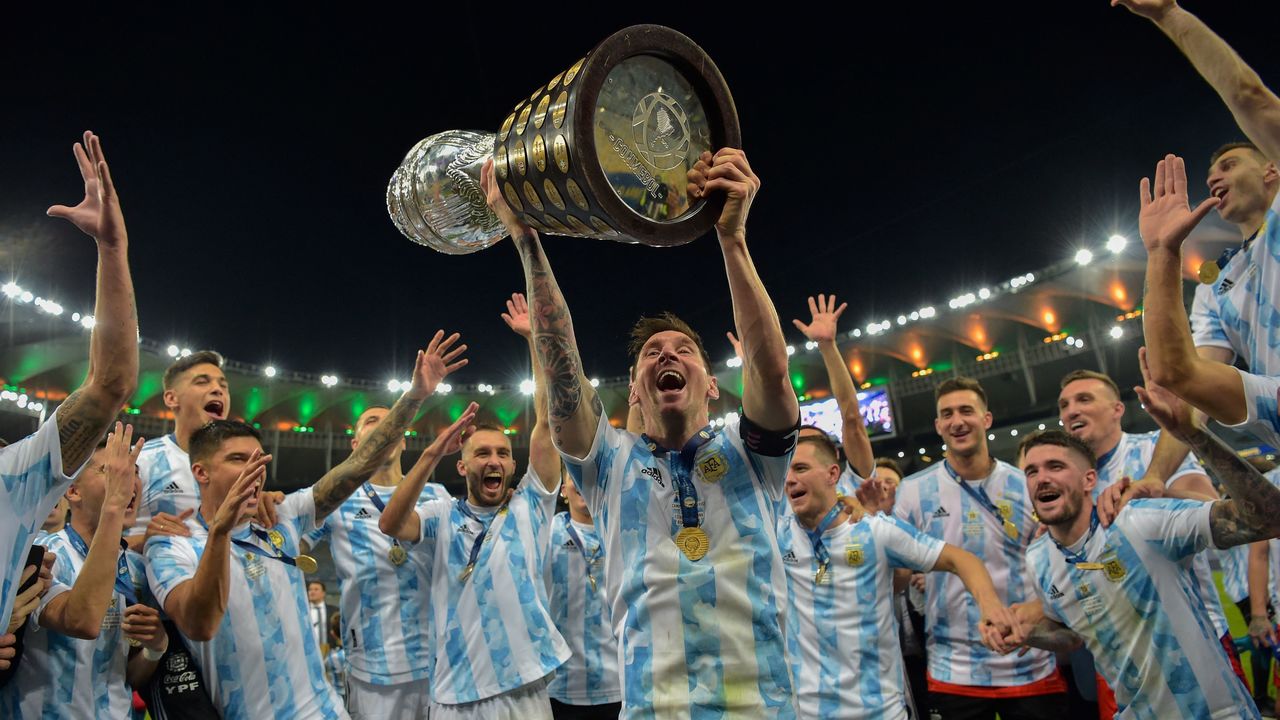
Messi didn’t seem as stressed as in years past when he’d furrow his brow and scrub his face before even kicking a ball. The play on the pitch improved as much as his demeanor. During last year’s Copa America, the 35-year-old led in goals, assists, chances created, and total shots, and his teammates followed suit. Martinez, the goalkeeper, saved three penalties in the semifinals. Defensively, Argentina shut down everything and everyone, conceding just three times all tournament. Messi’s teammates no longer stood there spectating in vain hope, praying he’d bail them out of trouble. They played for him, and he played for them.
Messi had become a leader of an inexperienced group that, according to Papu Gomez, felt they had more in common with the seven-time Ballon d’Or winner than any other player. He created not just a winning culture within the dressing room but a brotherhood, forging bonds with youngsters who would’ve been intimidated by his presence. He led by example, and opened the doors to the next generation.
“Perhaps knowing these are his last years,” Gomez told La Nacion in August 2021, “he’s a more open Leo who interacts much more with everyone.”
Now that he’s freed himself from the shackles of public opinion, Messi no longer seems to see his career as a chore to be fulfilled. He’s lighter on his feet and quicker to smile. He’s living this World Cup “with intensity.” He’s not just focusing on the next match. He’s enjoying the moment with his children, family, and friends, who also happen to be his teammates. He loves that his boys sing all the Argentinian songs, songs they heard during last year’s Copa America.
This is the legacy Messi values. This is what he’s taking from this journey. Winning in Qatar is not all that matters, even if everyone on the outside says it is.
You may like
La Liga
Look: Adidas drops huge collection of new kits for Euro 2024, Copa America
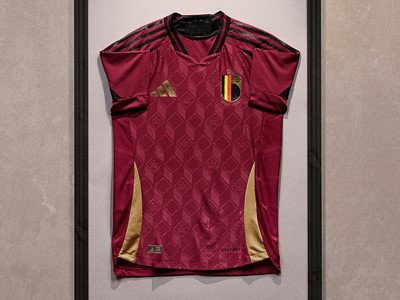
Find the biggest stories from across the soccer world by visiting our Top Soccer News section and subscribing to push notifications.
It’s time to bulk up your wardrobe for the upcoming glut of international football.
With Euro 2024 kicking off in 92 days and Copa America starting six days later, Adidas has revealed two new kits for 12 different national teams. These teams are guaranteed to wear their new uniforms on pitches across Germany and the United States this summer, with the exception of Wales, which must emerge from the Euro 2024 playoffs to ensure top tournament billing.
Adidas will also reveal fresh kits for Jamaica and Costa Rica in the near future. Both national teams face one-off playoffs March 23 to determine whether they’ll compete at Copa America.
(All images courtesy of Adidas.)
Euro 2024
Belgium
Home

The usual combination of colors for Belgium. The Royal Belgian Football Association’s crest features repeatedly in the shirt’s pattern.
Away
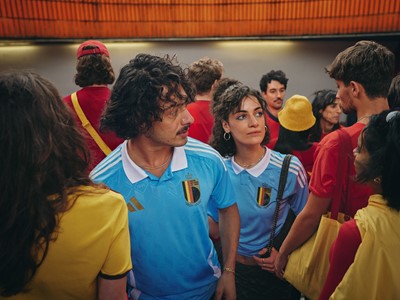
It’s the Tintin kit! The blue shirt is accompanied by brown shirts and white socks in homage to the iconic Belgian comic book character. It drew worldwide attention before its release.
Germany
Home
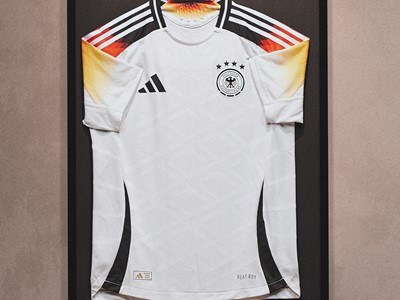
Germany opts for a classic look.
Away
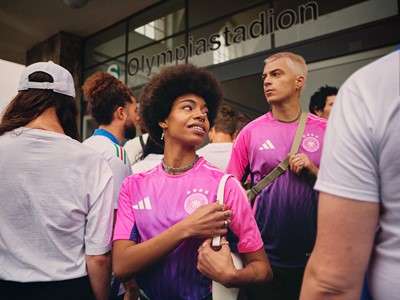
The away threads’ marriage of pink and purple is intended to celebrate the diversity of Germany’s new generation.
Hungary
Home
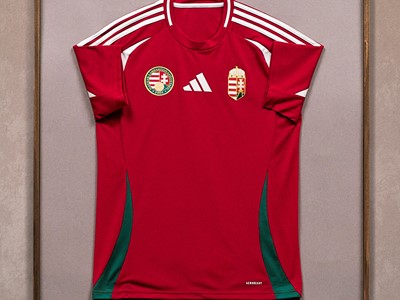
Adidas leaned on the national flag and patterns of the national team’s crest for ideas for Hungary’s home jersey.
Away
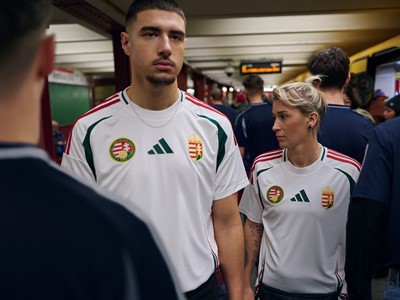
Hungary will wear a simple alternative shirt in Germany.
Italy
Home
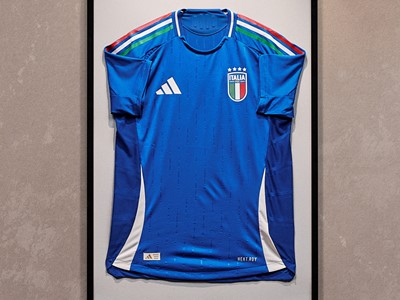
There’s nothing daring about this look, but incorporating the flag colors in the Adidas stripes is a nice touch.
Away
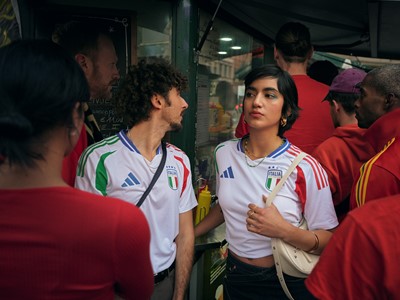
Does Italy’s away shirt look too much like training gear?
Scotland
Home
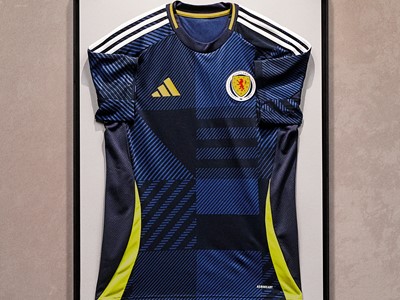
The patterns are a nod to Scottish tartan and heritage.
Away
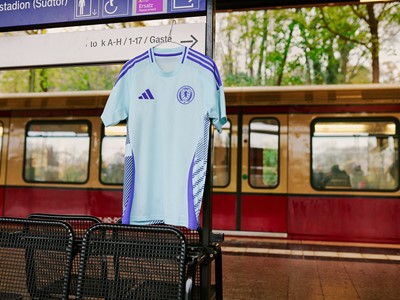
Tartan graphics also leak into Scotland’s away kit.
Spain
Home
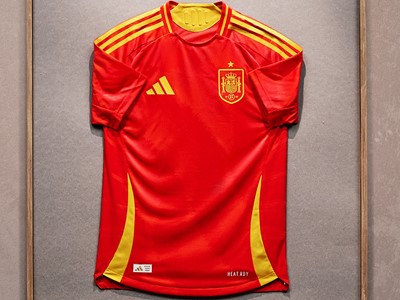
A very basic red-and-yellow theme for Spain’s main outfit.
Away
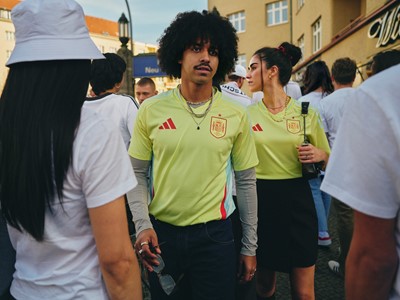
An interesting dash of blue on the side panels and at the base add intrigue to Spain’s away shirt.
Wales
Home
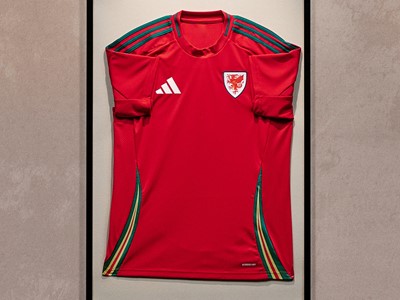
The curled spikes of green, yellow, and red up the side panels neatly round off this classic Welsh top.
Away
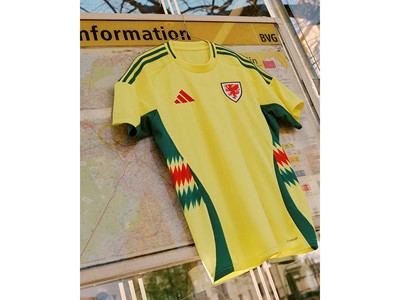
This kit is directly influenced by the Welsh bucket hat, which is a popular item worn by supporters at recent tournaments.
Copa America
Argentina
Home
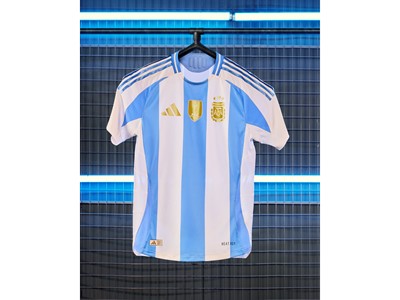
In addition to the shield acknowledging Argentina’s 2022 World Cup triumph, there are further gold details to really drive its global dominance home. And why not?
Away
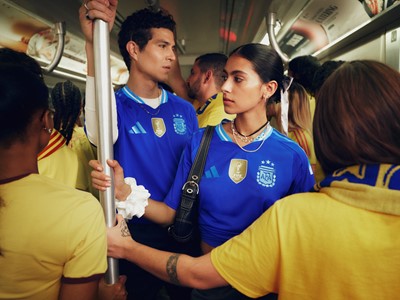
Argentina went quite safe for its away design.
Chile
Home
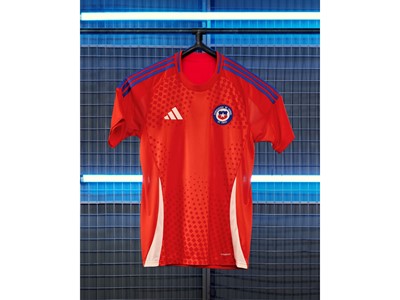
A mosaic of squares forms a star in the middle of Chile’s red home shirt.
Away
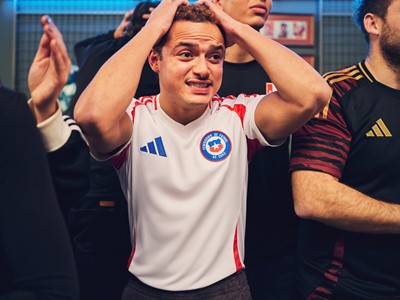
Is this model’s pose foreshadowing Chile’s performance at Copa America?
Colombia
Home
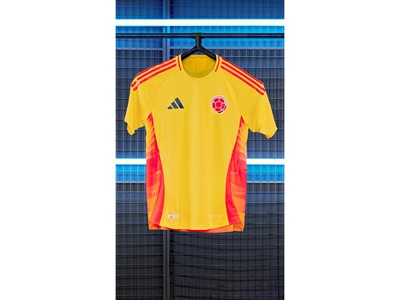
The patterning on the sides brings a unique touch to an otherwise classic Colombian look.
Away
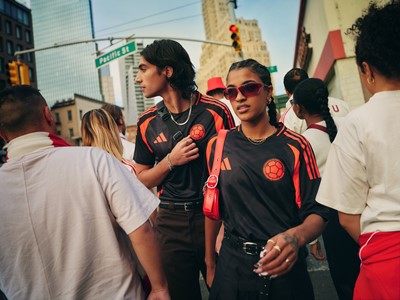
A strong orange tone lifts another dark base for Colombia’s away kit.
Mexico
Home
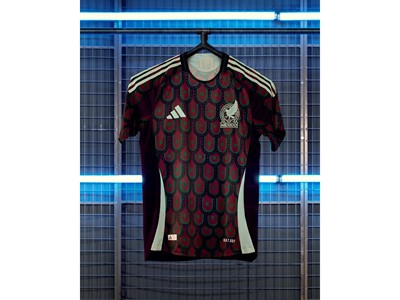
This is probably the best of the bunch. Mexico is always open to trying something different with its main jersey. Instead of green, El Tri will don a uniform with a burgundy-red base.
Away
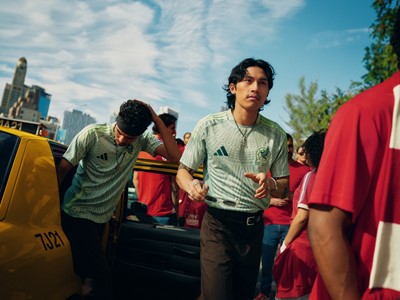
This mint-green effort is another original look for Mexico at Copa America.
Peru
Home
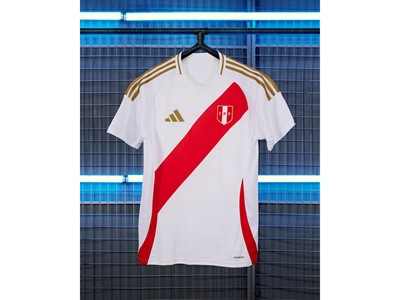
Peru’s red sash is one of the most celebrated adornments of any international jersey, but are the red embellishments rising from the hip a bit too much?
Away
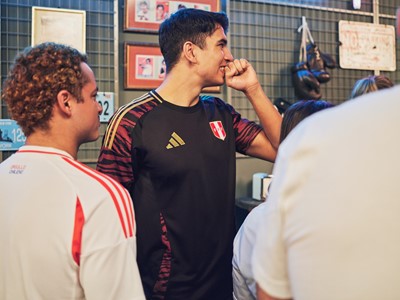
A simple design is spruced up with patterns intended to refer to the cajon, which is a Peruvian percussion instrument.
La Liga
Transfer window preview: 50 players who could move in January
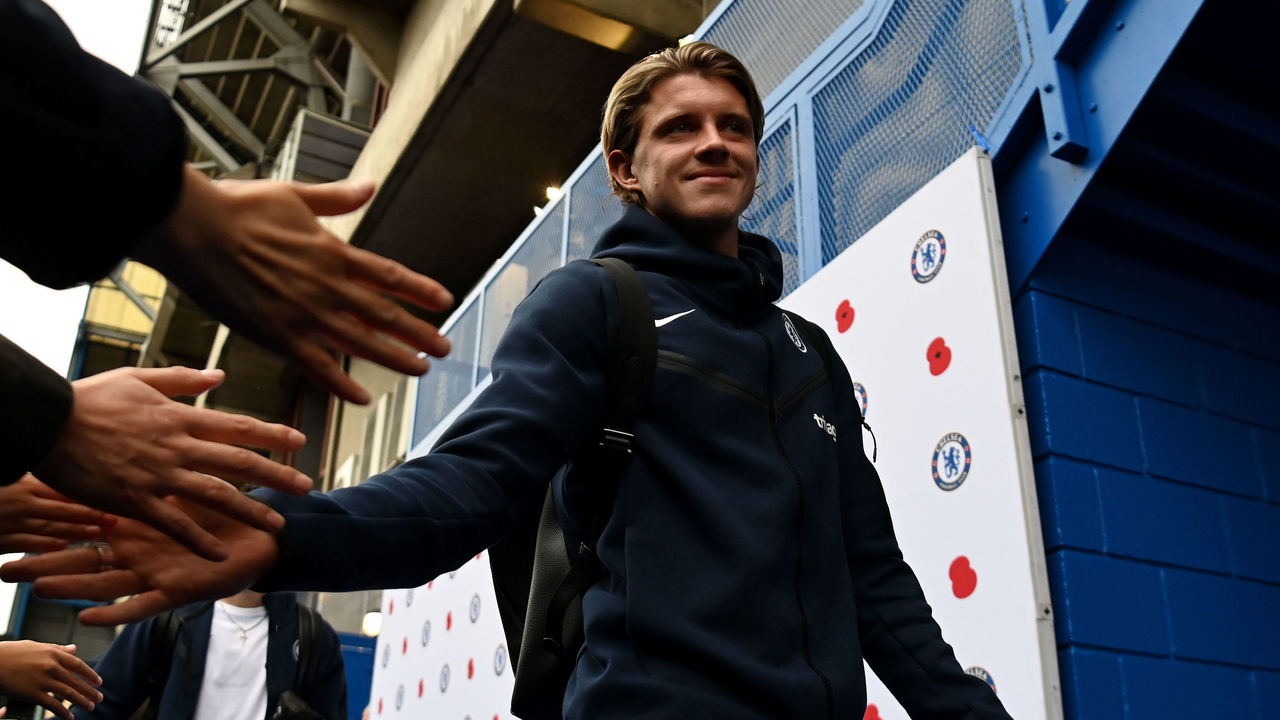
Find the biggest stories from across the soccer world by visiting our Top Soccer News section and subscribing to push notifications.
With the January transfer window set to open on the first day of the new year, we’re teeing up the wheeling and dealing by presenting 50 players who could be on the move.
| LEAGUE | DEADLINE DAY |
|---|---|
| Bundesliga | Feb. 1 (12 p.m. ET) |
| Ligue 1 | Feb. 1 (5 p.m. ET) |
| Premier League | Feb. 1 (6 p.m. ET) |
| La Liga | Feb. 1 (6 p.m. ET) |
| Serie A | Feb. 1 (7 p.m. ET) |
Note: Estimated transfer values provided by transfermarkt.com.
Premier League ?gbeng
Aaron Ramsdale (Arsenal)
Age: 25
Position: Goalkeeper
Estimated value: €28M
Unseated by the arrival of David Raya, Ramsdale’s future is a little murky. Arsenal are unlikely to sanction a loan move, especially to a Premier League rival, but with an eye on Euro 2024, the netminder needs more minutes.
Lloyd Kelly (Bournemouth)
Age: 25
Position: Center-back
Estimated value: €16M
Bournemouth don’t want to lose him, but with Kelly’s contract set to expire in the summer and no sign he’ll renew, defender-needy clubs like Liverpool and Tottenham Hotspur are circling in the hopes of sealing a midseason signing.
Ivan Toney (Brentford)
Age: 27
Position: Striker
Estimated value: €35M
Toney’s eight-month ban for betting breaches ends in January, and his return to the pitch could precipitate a transfer. He’s a proven scorer with 32 goals in 68 Premier League appearances, and plenty of clubs need help up front.
Marc Cucurella (Chelsea)
Age: 25
Position: Left-back
Estimated value: €25M
Despite his recent injury, Cucurella headlines a trio of defenders who may leave west London this winter – Ian Maatsen and Trevoh Chalobah could also depart. Chelsea, as ever, will be fascinating to watch when the window opens.
Conor Gallagher (Chelsea)
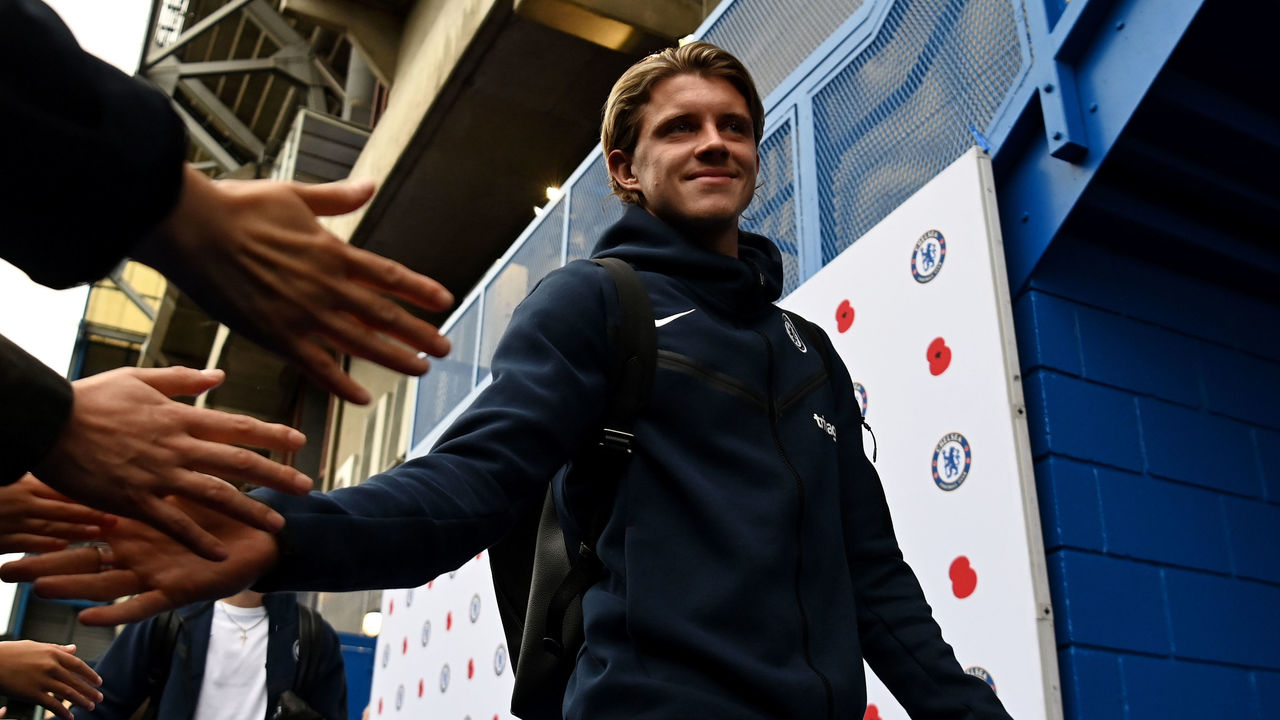
Age: 23
Position: Midfielder
Estimated value: €42M
One of the window’s most intriguing names. Only Axel Disasi has played more minutes for Chelsea this season – Gallagher has even worn the armband – but he represents the Blues’ best chance of making a sizeable profit in January.
Noni Madueke (Chelsea)
Age: 21
Position: Winger
Estimated value: €25M
January is about finding opportunities to bolster your squad or, in some cases, find a piece to push your team over the top. Madueke, clearly very talented but getting few chances to shine at Chelsea, could fit the bill.
Joao Palhinha (Fulham)
Age: 28
Position: Defensive midfielder
Estimated value: €60M
After coming agonizingly close to joining Bayern Munich in the summer – Palhinha was literally in Bavaria waiting, in vain, for a deal to be closed – the excellent midfielder will once again be a hot, though expensive, commodity.
Kalvin Phillips (Manchester City)
Age: 28
Position: Defensive midfielder
Estimated value: €28M
Nobody needs a January transfer more than Phillips, whose career has derailed since joining Manchester City; Pep Guardiola has repeatedly apologized for his lack of opportunities. Juventus are reportedly interested.
Anthony Martial (Manchester United)
Age: 28
Position: Forward
Estimated value: €15M
Erik ten Hag may say that Manchester United aren’t looking to move Martial, but the Frenchman’s limited amount of playing time this season speaks louder than the manager’s words ever will.
Jadon Sancho (Manchester United)
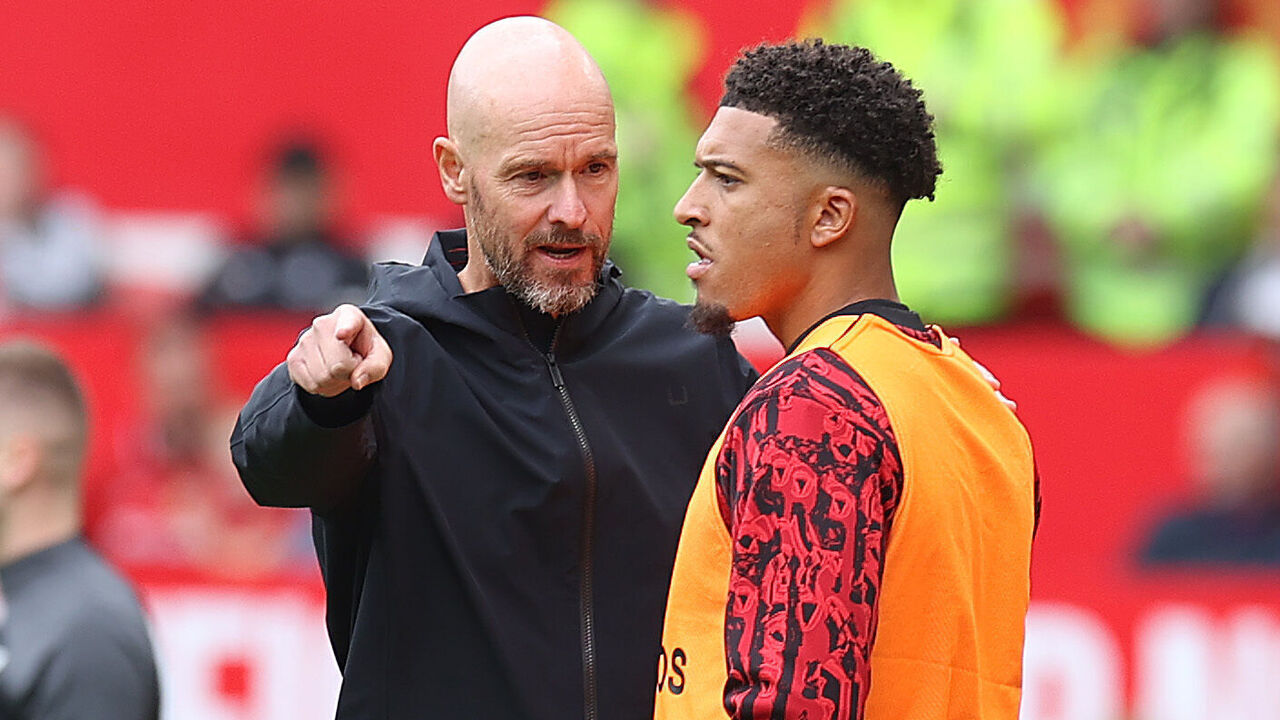
Age: 23
Position: Winger
Estimated value: €23M
With Sancho and Ten Hag perpetually at odds, it’s in everyone’s best interest to just part ways. A loan seems most likely in January, with United having a better chance of recouping some of his huge transfer fee in the summer.
Raphael Varane (Manchester United)
Age: 30
Position: Center-back
Estimated value: €25M
Real Madrid and Bayern Munich need help in central defense, and Varane could represent excellent value. His familiarity with the Spanish club would make his transition seamless, which is always a key consideration in January.
Pierre-Emile Hojbjerg (Tottenham Hotspur)
Age: 28
Position: Midfielder
Estimated value: €28M
Hojbjerg has only started three Premier League matches this season under Ange Postecoglou. In what will become a common refrain on this list, the Dane could depart in search of more regular playing time ahead of Euro 2024.
La Liga ??
Ferran Torres (Barcelona)
Age: 23
Position: Forward, winger
Estimated value: €35M
Despite getting consistent opportunities since joining the club, there’s always been a sense that Barcelona don’t truly believe in Torres. Already fierce competition for minutes will be more extreme following Vitor Roque’s arrival.
Miguel Gutierrez (Girona)
Age: 22
Position: Left-back
Estimated value: €20M
Gutierrez has been one of the breakout performers helping to fuel Girona’s fairy-tale title push. Real Madrid reportedly have an €8-million buyback option on the youngster, who seems destined for a big move soon.
Juan Miranda (Real Betis)
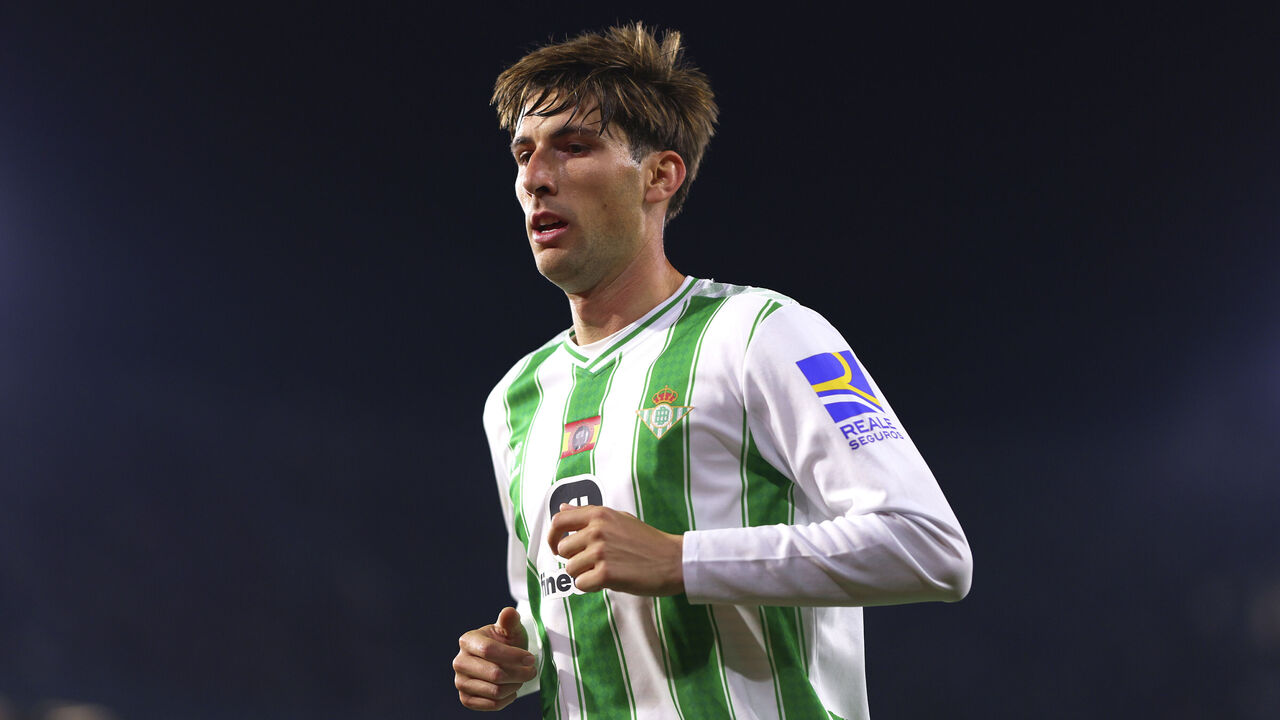
Age: 23
Position: Left-back
Estimated value: €9M
Miranda, a product of Barcelona’s famed academy, is another soon-to-be free agent who could yet leave in January if his club wants to procure a transfer fee. AC Milan, seeking defensive depth, are working to sign the Spaniard.
Rafa Mir (Sevilla)
Age: 26
Position: Striker
Estimated value: €5M
Sevilla are among the most obvious candidates for a big January shakeup following a dismal opening half of the season. Mir’s struggles – just two league starts and one goal – are emblematic of the rough campaign in Andalusia.
Serie A ??
Joshua Zirkzee (Bologna)
Age: 22
Position: Forward
Estimated value: €30M
Zirkzee’s been one of the revelations of the European season, helping power Bologna’s top-four push. The Dutchman reportedly has a €40-million release clause, and Bayern Munich retained a buyback option worth half that.
Radu Dragusin (Genoa)
Age: 21
Position: Center-back
Estimated value: €20M
A physically imposing center-back with the necessary on-ball skills to thrive in the modern game, Dragusin is garnering interest across Europe. Atalanta, perhaps anticipating Giorgio Scalvini’s summer exit, are reportedly keen.
Samuel Iling-Junior (Juventus)
Age: 20
Position: Winger
Estimated value: €20M
The Englishman has received little playing time after breaking into Juventus’ senior side last season. If Juve decide to sacrifice one of their young talents to generate funds, Iling-Junior seems the likeliest candidate at the moment.
Victor Osimhen (Napoli)
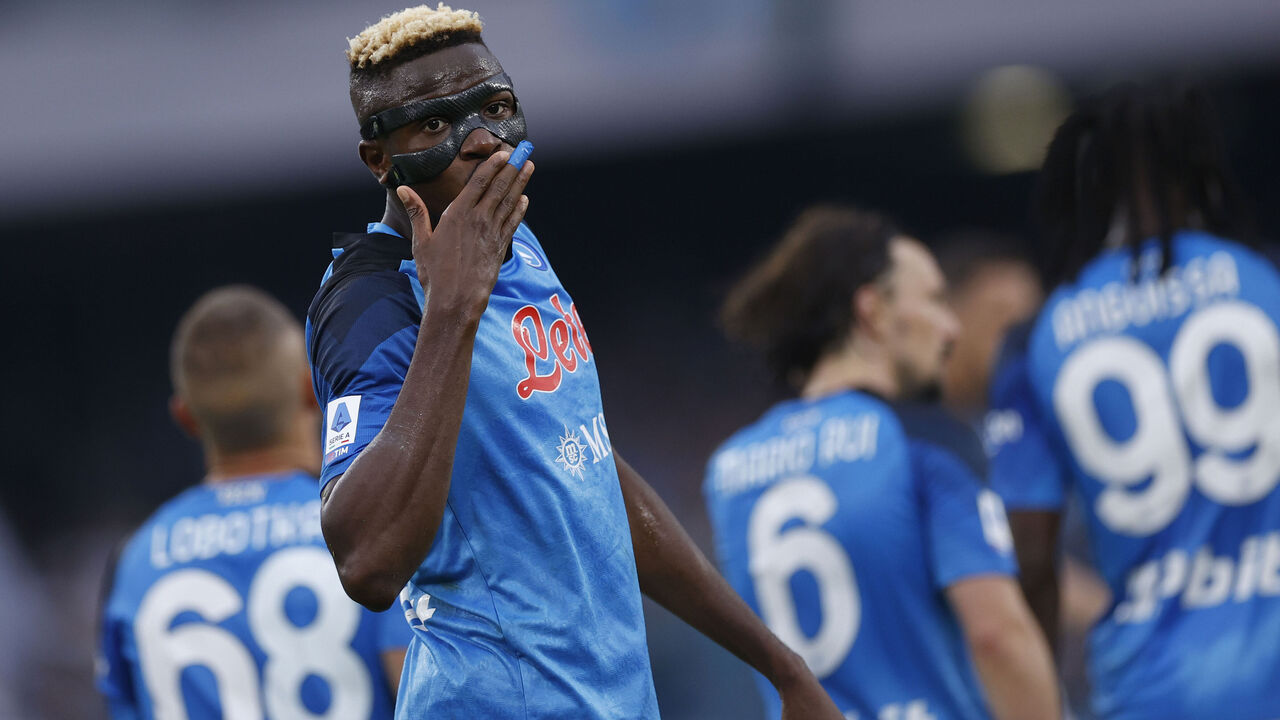
Age: 24
Position: Striker
Estimated value: €110M
Osimhen may have just signed a contract extension with the ailing Italian champions, but that won’t stop the rumors, especially with his reported €130-million release clause. Chelsea remain in desperate need of a proper No. 9.
Lazar Samardzic (Udinese)
Age: 21
Position: Attacking midfielder
Estimated value: €20M
Looking for something – anything, really – to help jump-start their miserable title defense, Napoli have apparently turned their attention to Samardzic, who provides silky dribbling and playmaking ability from midfield.
Bundesliga ??
Piero Hincapie (Bayer Leverkusen)
Age: 21
Position: Center-back
Estimated value: €35M
It’s hard to imagine anyone wanting to leave red-hot Bundesliga leaders Bayer Leverkusen right now, but Xabi Alonso’s preferred back-three doesn’t include the Ecuadorian, which could facilitate a January transfer.
Gio Reyna (Borussia Dortmund)
Age: 21
Position: Attacking midfielder
Estimated value: €20M
Reyna must move to get his once blossoming career back on track. A variety of factors contributed to his recent status as a bit-part player at Dortmund, but he’s flashed enough potential in the past to earn a chance elsewhere.
Donyell Malen (Borussia Dortmund)
Age: 24
Position: Winger
Estimated value: €35M
Dortmund tumbled down the table following a rough run into the winter break, leaving Edin Terzic on thin ice. Against that backdrop, parting with one of your few scoring threats would be a tough sell, but rumors about Malen persist.
Manu Kone (Borussia Monchengladbach)
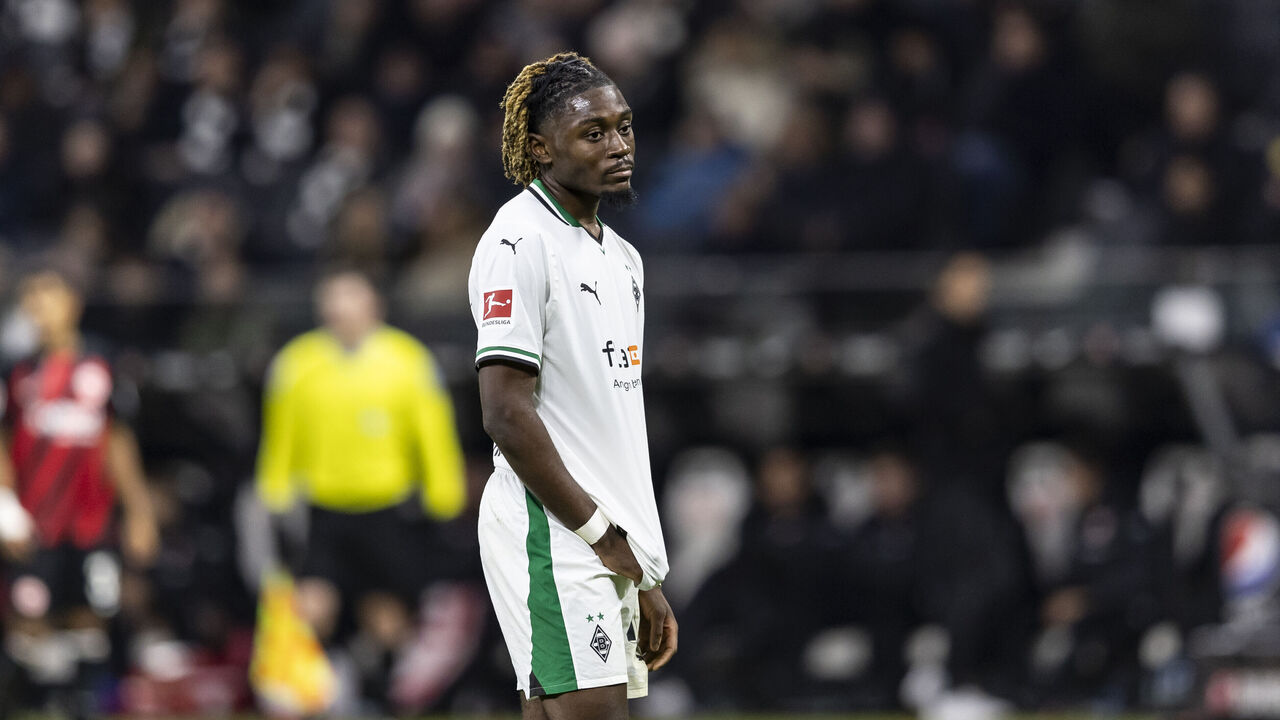
Age: 22
Position: Midfielder
Estimated value: €35M
After several clubs, including Bayern Munich and Liverpool, were linked with his services in the summer, the trail has gone a little cold on Kone of late. That’s sure to change in January. A deadline-day deal is a distinct possibility.
Fabio Carvalho (RB Leipzig)
Age: 21
Position: Attacking midfielder
Estimated value: €14M
Carvalho’s loan move to RB Leipzig simply hasn’t worked out as anyone had hoped. He’s made just three starts, prompting Liverpool to explore the possibility of recalling and sending him elsewhere in January.
Serhou Guirassy (VfB Stuttgart)
Age: 27
Position: Striker
Estimated value: €40M
Scoring 17 goals in 14 Bundesliga games doesn’t go unnoticed. A January move for the Guinean is complicated by his expected involvement in AFCON, but his extremely modest €17.5-million release clause has clubs salivating.
Ligue 1 ??
Tiago Djalo (Lille)
Age: 23
Position: Center-back
Estimated value: €15M
Instead of losing the Portuguese defender for free in the summer, Lille are reportedly considering cashing in now. With Inter, Juventus, and Atletico Madrid all in the mix, the French outfit could incite a decent bidding war.
Leny Yoro (Lille)
Age: 18
Position: Center-back
Estimated value: €25M
Already one of the standout defenders in France despite his tender age, Yoro is someone Lille will fight to keep for as long as possible. PSG, now trying to scoop up every emerging talent in the country, will need to pony up.
Khephren Thuram (Nice)
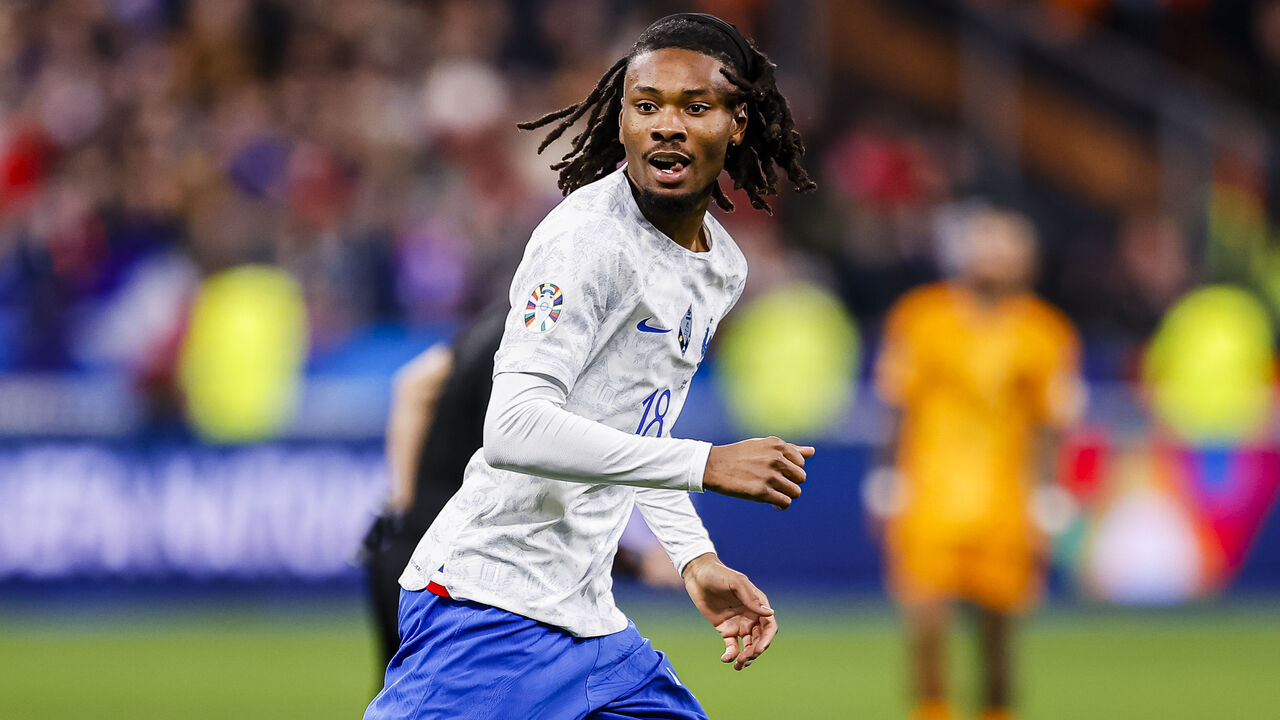
Age: 22
Position: Midfielder
Estimated value: €40M
Thuram, despite interest from England and Italy in the summer, remained in the French Riviera – who could blame him? Both he and teammate Jean-Clair Todibo will feature prominently as the January rumors swirl.
Hugo Ekitike (Paris Saint-Germain)
Age: 21
Position: Striker
Estimated value: €15M
Ekitike’s big move to the French capital went sour very quickly. PSG tried to offload him in the summer, to no avail. Stuck behind Randal Kolo Muani and Goncalo Ramos, he’s played a measly nine minutes in Ligue 1 this season.
Kylian Mbappe (Paris Saint-Germain)
Age: 25
Position: Forward
Estimated value: €180M
What, you thought we’d get through a transfer window without rehashing Mbappe’s flirtations with Real Madrid? The saga will inevitably heat up again now that Madrid can negotiate openly with the impending free agent.
Around the world ?
Jota (Al-Ittihad)
Age: 24
Position: Forward, winger
Estimated value: €9M
Jota’s move to Saudi Arabia has been an unmitigated disaster for everything but his bank account thus far, sparking rumors that the ex-Celtic star could be one of the first players to make a swift return to Europe from the Middle East.
Thiago Almada (Atlanta United)
Age: 22
Position: Attacking midfielder
Estimated value: €27M
It’s simply a matter of when Almada makes the leap to Europe. The only question is whether the diminutive Argentine will break Miguel Almiron’s €24-million record as the most expensive outgoing transfer in MLS history.
Antonio Silva (Benfica)
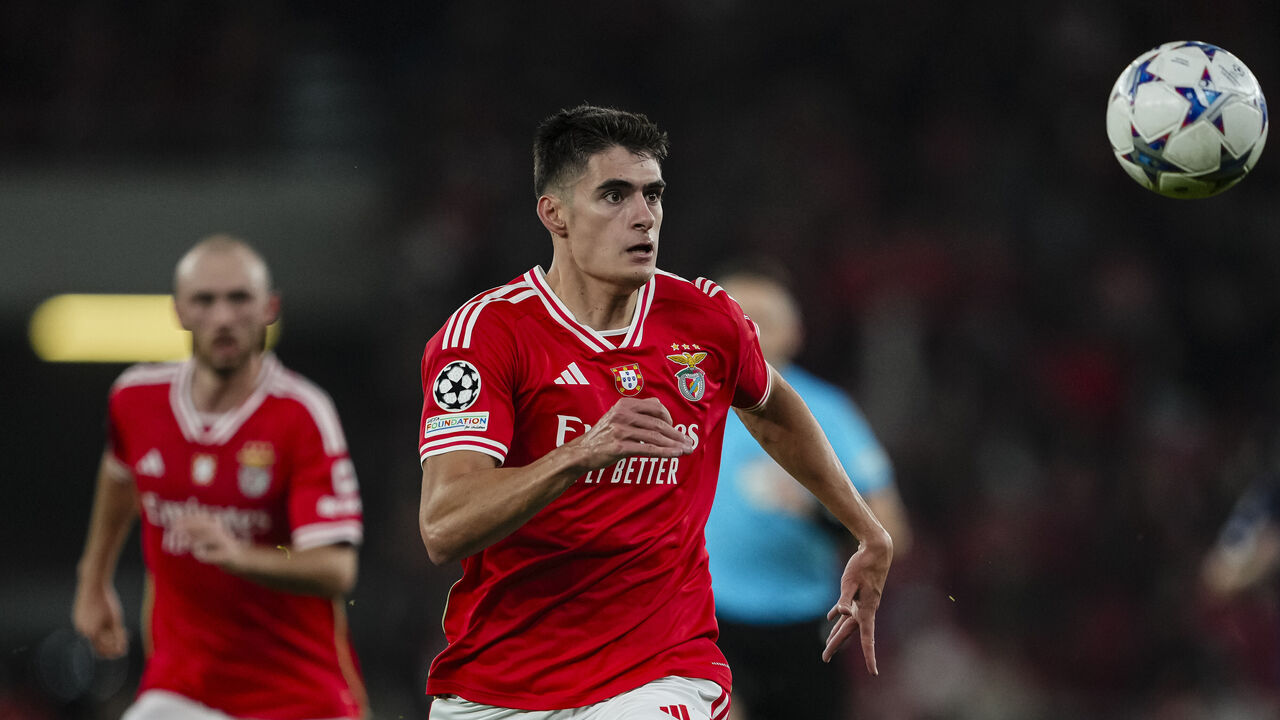
Age: 20
Position: Center-back
Estimated value: €45M
Enzo Fernandez’s mammoth move to Chelsea proved that Benfica aren’t afraid to sanction sales of vital players in January if the offer is sweet enough. Silva, whose price tag is only rising, could be next in line.
Valentin Barco (Boca Juniors)
Age: 19
Position: Left-back
Estimated value: €13M
Chelsea are reportedly keen on Barco. Strasbourg, the French side also owned by the Todd Boehly-Clearlake Capital consortium, could be used by the Blues as a means to beat the likes of Manchester City to the Boca starlet.
Tajon Buchanan (Club Brugge)
Age: 24
Position: Winger, wing-back
Estimated value: €8M
Inter are reportedly advancing in talks for the rapid Canadian, who’s viewed as the ideal replacement for the injury-ravaged Juan Cuadrado. Buchanan would serve as Denzel Dumfries’ backup in Simone Inzaghi’s 3-5-2 formation.
Benjamin Rollheiser (Estudiantes de La Plata)
Age: 23
Position: Winger
Estimated value: €10M
Newcastle United, decimated by injuries and in search of reinforcements, are reportedly tracking the electrifying dribbler, who’s lighting things up in Argentina. Not to be outdone, Benfica and Atletico Madrid are also circling.
Brandon Vazquez (FC Cincinnati)
Age: 25
Position: Striker
Estimated value: €8.5M
Vazquez was unable to replicate his breakout 2022 campaign this past year, but that hasn’t deterred clubs intrigued by his blend of power and scoring prowess. Brentford, given the uncertainty around Toney, could make a move.
Nico Gonzalez (FC Porto)
Age: 21
Position: Midfielder
Estimated value: €9M
Things haven’t quite worked out as planned after a summer move to Porto, with the former Barcelona midfielder spending most of his time on the bench. An immediate return to La Liga shouldn’t be ruled out.
Mehdi Taremi (FC Porto)
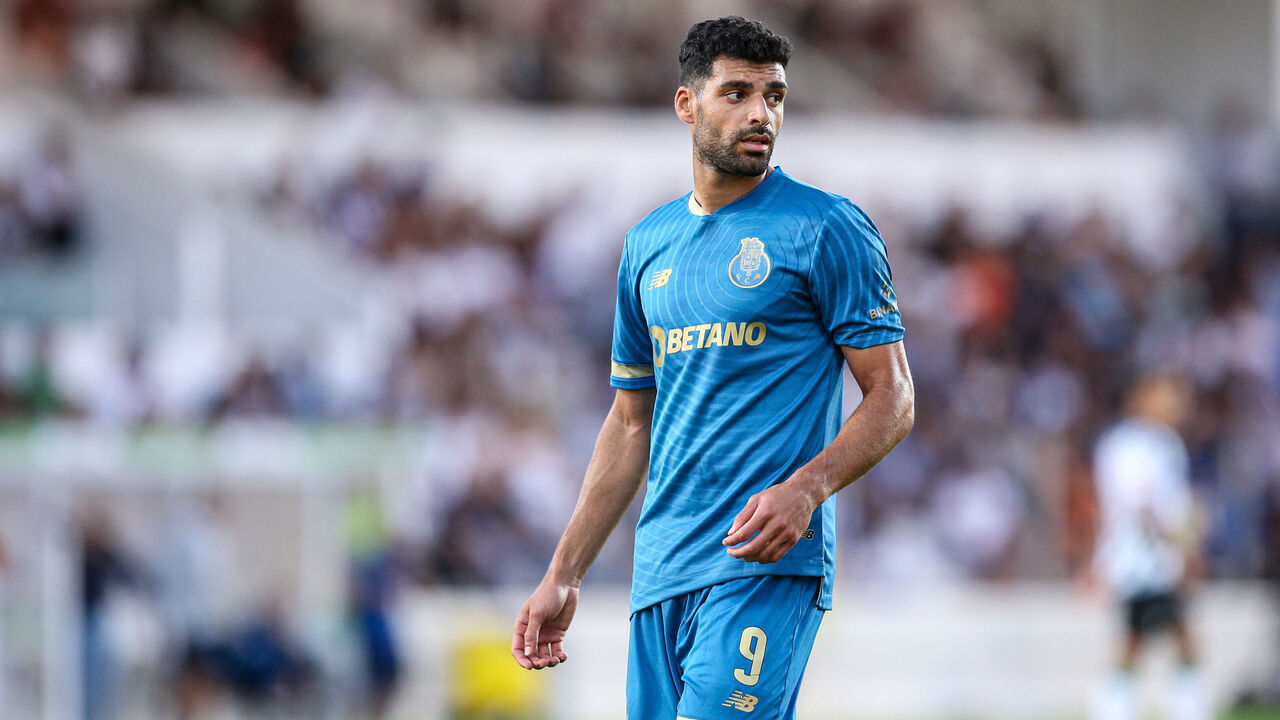
Age: 31
Position: Striker
Estimated value: €12M
Inter continue to show strong interest in Taremi, who was one of their targets in the summer window before they settled for a low-cost option in Marko Arnautovic. The Iranian striker is a free agent at the end of the season.
Santiago Gimenez (Feyenoord)
Age: 22
Position: Striker
Estimated value: €50M
The prolific Mexican is one of the game’s most coveted scorers after a sensational 2023 in which he broke Luis Suarez’s record for most Eredivisie goals in a calendar year. Feyenoord will demand a fortune, and rightly so.
Andre (Fluminense)
Age: 22
Position: Defensive midfielder
Estimated value: €25M
The Brazilian, who was scouted by some of the Premier League’s top teams over the summer, put them all on high alert when he recently said his “big dream” is to play in England. How long can Fluminense hold on to him?
Denis Bouanga (LAFC)
Age: 29
Position: Forward
Estimated value: €10M
On the heels of capturing the MLS Golden Boot in 2023, Bouanga suggested he could soon return to Europe. Any move would require a “hugely expensive” transfer fee, according to LAFC general manager John Thorrington.
Johan Bakayoko (PSV Eindhoven)
Age: 20
Position: Winger
Estimated value: €40M
Wingers who excel at beating their defender and teeing up teammates inside the penalty area are always in high demand, so the collection of big clubs eyeing Bakayoko should come as no surprise. An opulent transfer beckons.
Georgiy Sudakov (Shakhtar Donetsk)
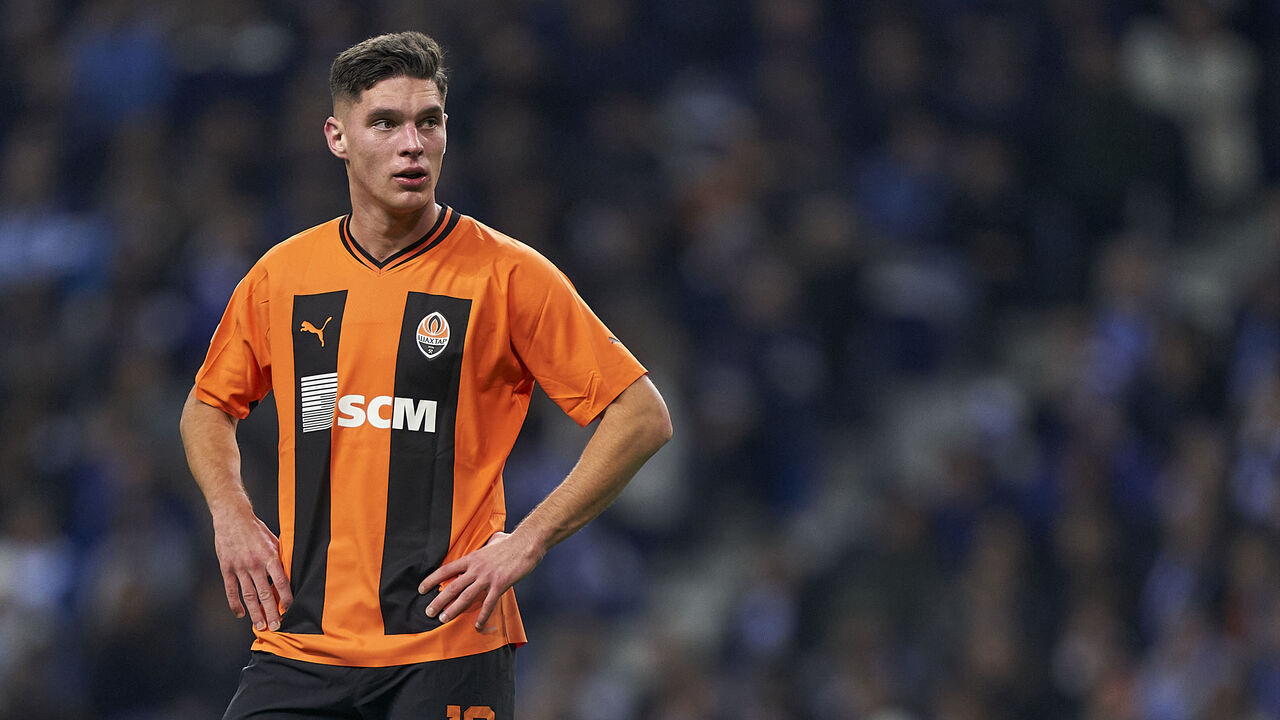
Age: 21
Position: Attacking midfielder
Estimated value: €18M
Already a regular for his national team, the Ukrainian is being monitored by Juventus, who are looking for more guile and creativity in midfield amid the continued absences of Paul Pogba and Nicolo Fagioli.
Viktor Gyokeres (Sporting CP)
Age: 25
Position: Striker
Estimated value: €45M
Sporting made out like bandits when they signed Gyokeres from Coventry City for a modest €20 million this past summer. The Swede is now worth more than double that amount after going on a tear since arriving in Portugal.
Goncalo Inacio (Sporting CP)
Age: 22
Position: Center-back
Estimated value: €40M
Like his compatriot Silva at Benfica – a player to whom he’s often compared – Inacio has been scouted by some of the continent’s heavyweights. The defender reportedly has a €60-million release clause in his contract.
Claudio Echeverri (River Plate)
Age: 17
Position: Attacking midfielder
Estimated value: €12M
Manchester City are working hard to beat Barcelona to Echeverri’s coveted signature. The ascendant Argentine was one of the standout players at the recent Under-17 World Cup and could reportedly cost up to €25 million.
Arthur Vermeeren (Royal Antwerp)
Age: 18
Position: Defensive midfielder
Estimated value: €30M
Chances are your favorite club has been linked with Vermeeren at some point in recent weeks. Judging by his displays in the Champions League, the prodigious Belgian already looks capable of handling a big transfer.
La Liga
theScore's 50 favorite moments of 2023: Titles, twists, and one epic speech
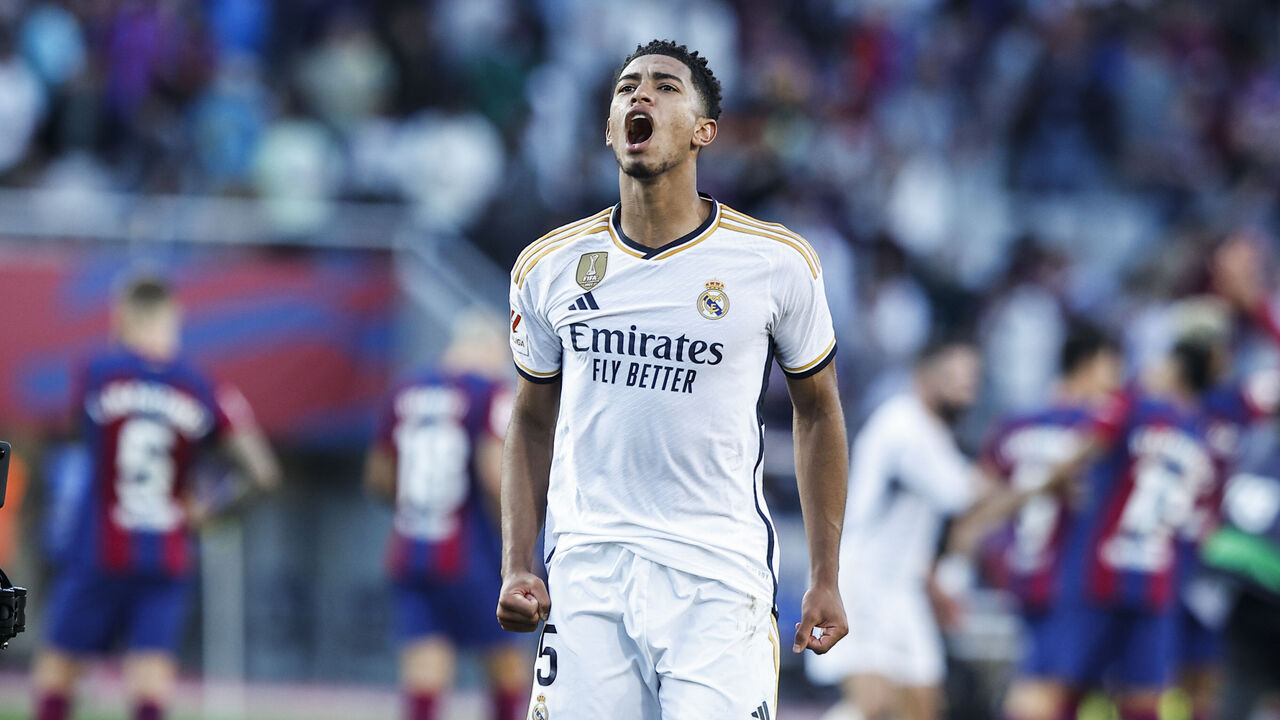
This year in sports was defined by inspiring stories, historic achievements, and surreal events that not even Hollywood could script. We loved them all. With 2023 drawing to a close, theScore is looking back on 50 moments that resonated most with us over the past 12 months. Our five-part series, which counts down every Friday in December, continues below with moments 30-21.
| Dec. 1 | Dec. 8 | Dec. 15 | Dec. 22 | Dec. 29 |
|---|---|---|---|---|
| 50-41 | 40-31 | 30-21 | 20-11 | 10-1 |
30. Bellingham takes down Barca ?
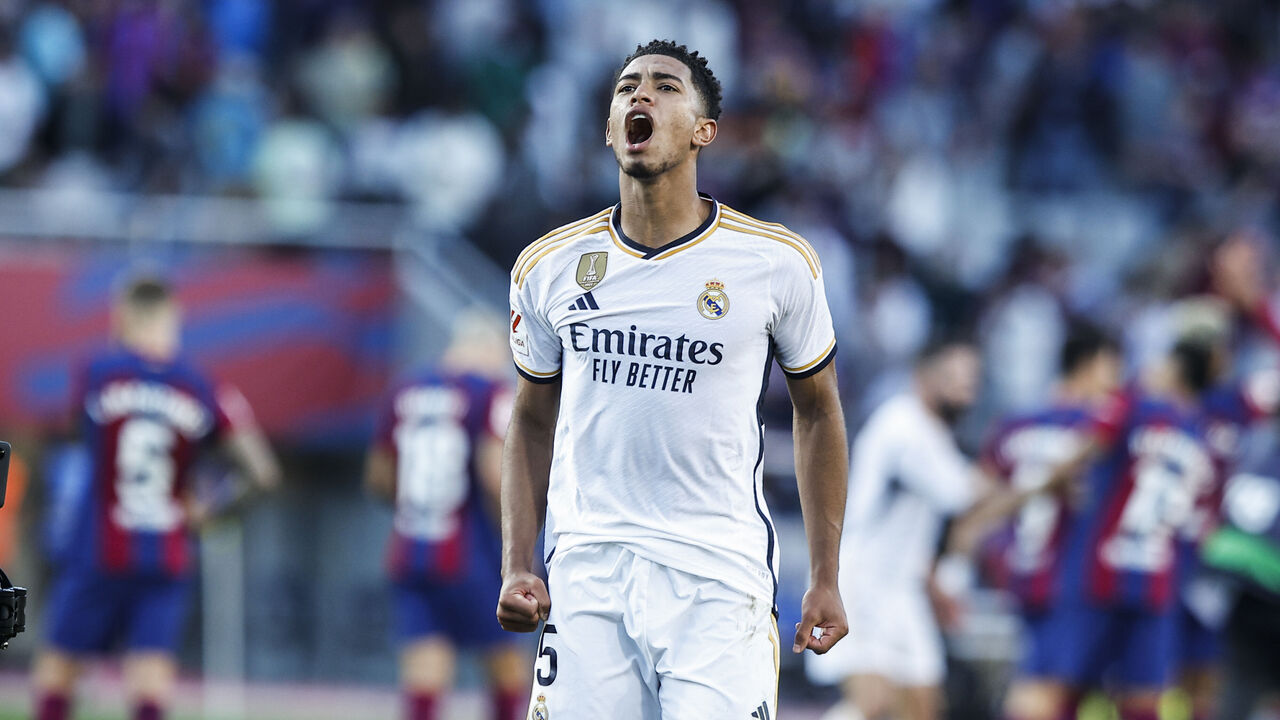
Jude Bellingham was already hailed as the second coming of Cristiano Ronaldo before he led Real Madrid to victory in his first Clasico. The English midfielder morphed into one of the best finishers in the world after joining the club from Borussia Dortmund. His 13 goals in his first 10 games – including various winning strikes – were two more than Ronaldo scored to start his iconic career in Madrid. But nothing compared to Bellingham’s heroics against Madrid’s bitter rivals, Barcelona. After scoring a spectacular equalizing goal from 30 yards out, the 20-year-old further endeared himself to fans with an opportunistic winner in the dying minutes. – Gordon Brunt
29. Etienne’s Pyrrhic performance ?
I played against myself in fantasy fb today ?
— Travis Etienne Jr?? (@swaggy_t1) October 8, 2023
Everyone loves a big fantasy football performance – unless you’re on the wrong side of it. Imagine how Travis Etienne felt after posting one of the best games of his career while playing against himself in fantasy football. The running back exploded for 136 rushing yards, four receptions, 48 receiving yards, a pair of touchdowns, and a two-point conversion against the Bills in Week 5. His opponent surely appreciated the 30+ fantasy points, but Etienne was likely happier winning the game in real life on the back of his dominant outing. – Andrew Dixon
28. PGA TOUR, LIV Golf join forces ?
If you can’t beat ’em, join ’em. After more than a year of legal battles, the PGA announced a surprise merger with Saudi Arabia’s LIV Golf, shocking just about everyone. While LIV golfers like Phil Mickelson rejoiced, many PGA golfers found out about the merger through a leaked press release on social media, and members of Netflix’s docuseries “Full Swing” found out on camera. Those who refused LIV Golf’s massive payouts were angered by the PGA’s lack of loyalty, and Tiger Woods was “frustrated” with the lack of player involvement. The tours have until Dec. 31 to finalize the agreement but, regardless of the outcome, June 6 will go down in golf history as a day stranger than fiction. – Sarah Wallace
27. FDU stuns No. 1 Purdue ?
(16) FDU UPSETS (1) PURDUE ???
MARCH. KEEPS. ON. GIVING. #MarchMadness pic.twitter.com/4T0K3n13Er
— NCAA March Madness (@MarchMadnessMBB) March 18, 2023
Five years after No. 1 Virginia lost to No. 16 UMBC, New Jersey’s Fairleigh Dickinson handed Purdue an opening-round loss in the same setup. The Knights had to win in the First Four to qualify, while the Boilermakers lost four games to end the regular season before winning the Big Ten title. FDU held off No. 1 Purdue with two clutch blocks in the final minute of play to advance the Knights to the second round. Meanwhile, No. 4 Virginia lost to No. 13 Furman, marking the second time in three years the Cavaliers lost in the first round. – Donald Higney
26. Aces breathe rarefied air ?
The Las Vegas Aces and New York Liberty were on a collision course to meet in the WNBA Finals all season long. Both teams were loaded with stars and dominated in the regular season to earn the top seeds in their respective conferences. The Aces took the first two games at home before the Liberty responded with a victory in Game 3. Las Vegas lost starting point guard Chelsea Gray and starting center Kiah Stokes to injuries before Game 4 but withstood their absences to claim a 70-69 victory. The win made them just the third repeat champion in WNBA history, and the first since 2002. – Josh Goldberg
25. José Ramírez decks Tim Anderson ?
It’s fight night in Cleveland ? pic.twitter.com/3NEIpBEbSf
— White Sox Talk (@NBCSWhiteSox) August 6, 2023
It was a bad, bad year for Tim Anderson. The former batting champ struggled through injuries and underperformed in the most disappointing campaign of his career. But the worst night of his dreadful season came on Aug. 5 when he picked a fight with the wrong guy. The White Sox shortstop hurled his glove to the ground and put his dukes up after getting into a verbal dispute with Guardians slugger José Ramírez – which turned out to be a poor decision. Anderson hit the dirt like a ton of bricks after catching a wild overhand right from Ramírez. The fight led to a bench-clearing brawl and Eloy Jiménez even got stepped on as Anderson was sidelined recovering from embarrassment. – Bryan Mcwilliam
24. Nuggets, Jokic claim 1st title ?
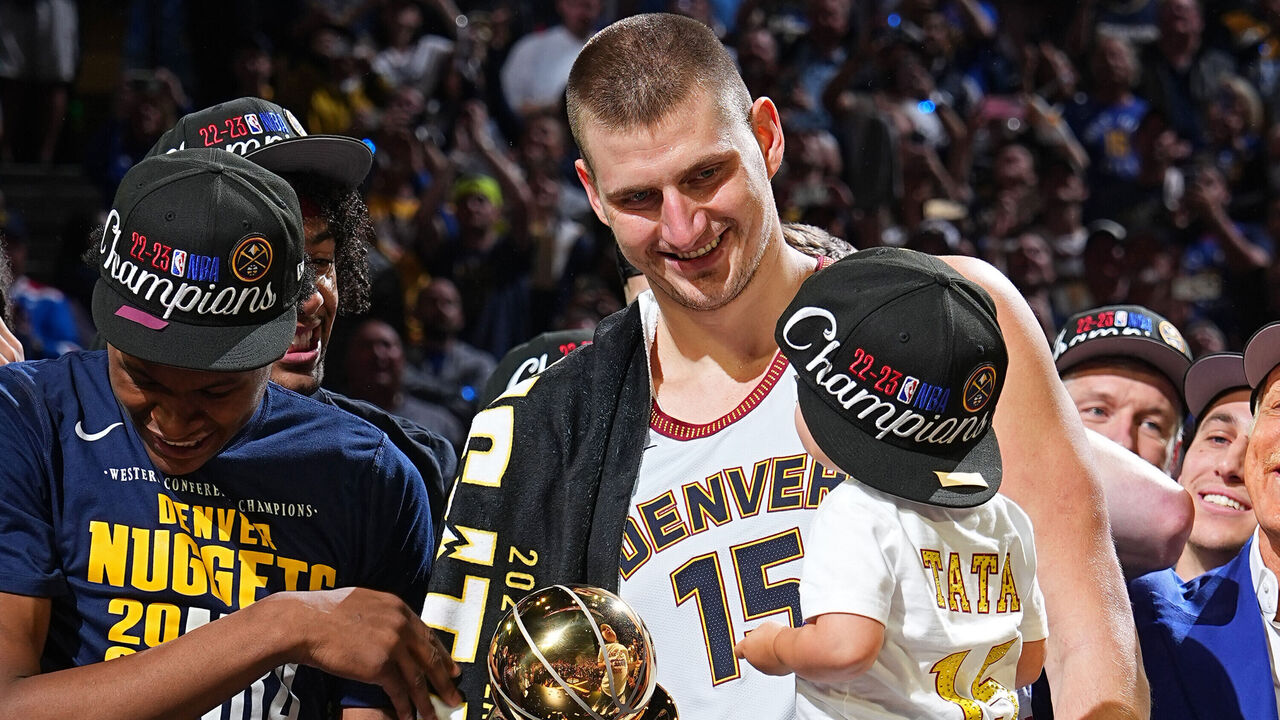
For the fifth straight season, the NBA got a new champion. The Denver Nuggets won their first championship after taking down the Miami Heat in June. Nikola Jokic dominated the playoffs, averaging 30 points, 13.5 rebounds, 9.5 assists, and 1.1 steals per game – elevating his game as the competition and stakes increased every round. Denver got a boost from Jamal Murray, who put up 26.1 points and 7.1 assists in the postseason as he played in his first campaign after an ACL tear. With this tandem, the Nuggets look to be a formidable championship contender for the foreseeable future. – Higney
23. Coco conquers US Open ?
Greatness was expected of Coco Gauff ever since she made her professional debut at 14 years old. But those expectations quickly became a burden, weighing her down even as she spent her high school years winning various 500- and 1,000-level tournaments. So when she came back from a set down against Aryna Sabalenka to win the US Open in September – clinching her first major title at the grand old age of 19 – Coco had a few things to say. “To those who thought they were putting water on my fire, you were really adding gas to it, and now I’m really burning so bright right now,” she said as the 28,000 at Arthur Ashe Stadium erupted in support. Now it’s no longer about whether Coco can win majors, but how many victories she’ll collect. – Anthony Lopopolo
22. You come at the king … ?
LEBRON JAMES IS IN #PLAYOFFMODE
CLUTCH AND-1 AS GAME 4 COMES TO A CLOSE ON TNT. pic.twitter.com/mRmbgssUzQ
— NBA (@NBA) April 25, 2023
LeBron proved that you can’t count him out, even during his 20th NBA season. After then-Memphis Grizzlies wing Dillon Brooks sent him numerous taunts and a hit in the groin, LeBron got his revenge. Leading by three points in overtime of Game 4 in their opening-round playoff series, the dueling players found themselves matched up – with LeBron driving past Brooks and drawing a timely foul to help put the lower-seeded Lakers up 3-1 in the series. In a cathartic moment, King James burst into emotion as the Lakers crowd went crazy. L.A. went on to win the series, while the Grizzlies declined to re-sign Brooks, allowing him to join the Houston Rockets. – Higney
21. Wild Bill’s legendary parade speech ?
Warning: Video contains coarse language
William Karlsson just gave one of the greatest speeches ever, absolute all-timer#VegasBorn pic.twitter.com/DeWcncvNJr
— Hockey Daily 365 l NHL Highlights & News (@HockeyDaily365) June 18, 2023
There have been some incredible Stanley Cup parade speeches over the years, but Vegas Golden Knights forward William Karlsson gave one for the ages in June. The moment he took the mic shirtless and drenched in sweat, it was clear he was about to deliver an all-timer. It’s two minutes of absolute gold: Karlsson initially censoring himself but dropping an actual F-bomb 22 seconds later. The Arizona Coyotes catching a stray. That poor woman trying in vain to get him to wrap it up with a tap on the back, the hand-across-the-throat gesture, a plea of “let’s go,” and finally dragging him across the stage. Perfection. – Josh Gold-Smith
Let us know what your favorite sports moments were in the comments!

Breaking down thrilling EPL title race with 10 games left

Euro 2024 playoffs: Miraculous Ukraine comeback, big result for Wales

Managerial merry-go-round: Predicting hires for marquee jobs

The Champions League's best XI so far

35 stars who will define the summer transfer window

Ajax show Juventus that winning requires more than individual quality
Trending
-
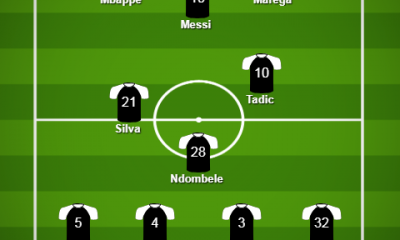
 Champions League5 years ago
Champions League5 years agoThe Champions League's best XI so far
-
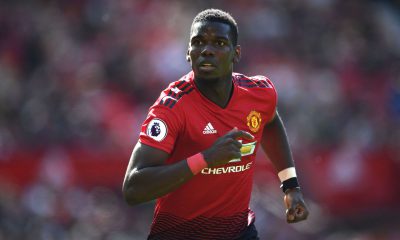
 Serie A5 years ago
Serie A5 years ago35 stars who will define the summer transfer window
-
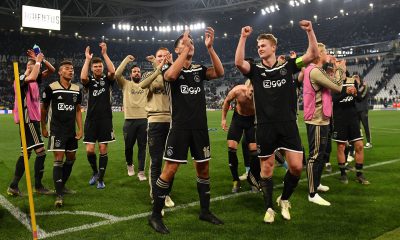
 Serie A5 years ago
Serie A5 years agoAjax show Juventus that winning requires more than individual quality
-
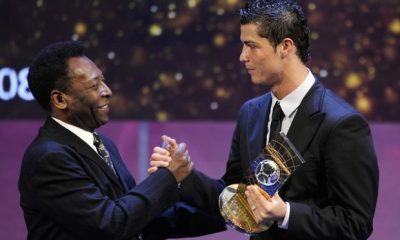
 Uncategorized3 years ago
Uncategorized3 years agoIFFHS publishes the list of top scorers in football history – Romario first, Ronaldo third
-
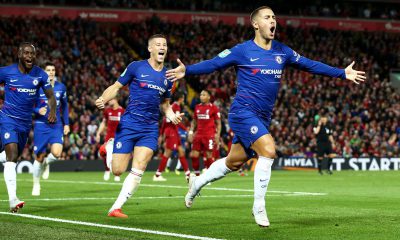
 Premier League5 years ago
Premier League5 years agoTransfer grades: Assessing Hazard’s move to Real Madrid
-
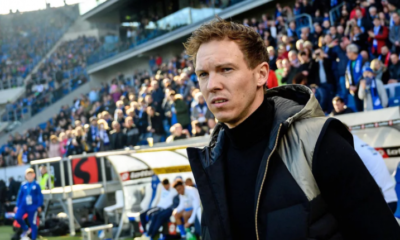
 Sports5 years ago
Sports5 years agoReady Newest Trainer in Bundesliga History, retire SOLSKYER.
-
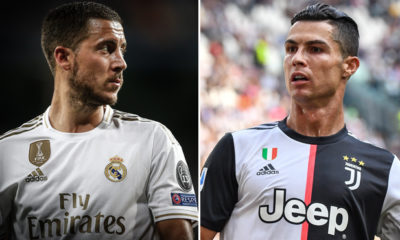
 Sports5 years ago
Sports5 years agoWenger: Hazard can’t replace Ronaldo.
-
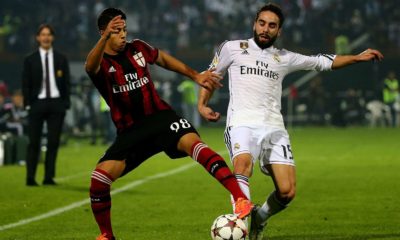
 Sports5 years ago
Sports5 years agoMastur Talent Returns: In Milan I was a chance to make money, penalized me for growing up as a footballer.

